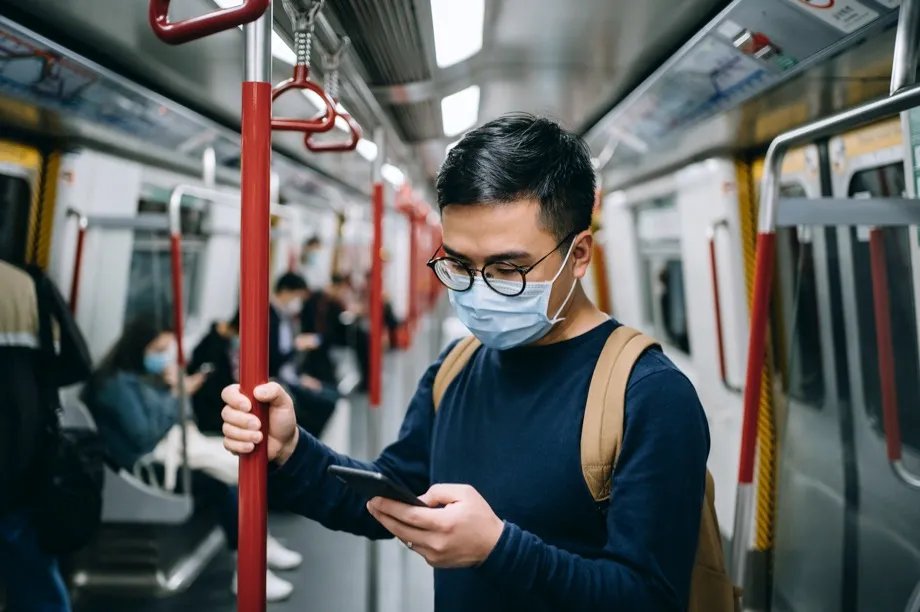The race for a COVID-19 vaccine is hotting up. There are currently over 150 candidate vaccines in development around the world, with around 30 being tested on humans.
But for some scientists, the progress isn’t fast enough. There are growing calls for so-called ‘human challenge studies’, which would deliberately infect volunteers with the coronavirus SARS-CoV-2, with the aim of speeding up vaccine development by, according to one paper, as much as several months, potentially saving thousands of lives.
This would be a big ethical leap from current vaccine trials. Currently, a candidate COVID-19 vaccine goes through three phased trials. In the final trial (phase III), up to 10,000 volunteers are given either the candidate vaccine or a placebo.
The volunteers then go about their daily lives, and the scientists wait to see who gets infected, and who doesn’t. If the vaccine works, the scientists should see significantly fewer COVID-19 cases in the vaccine group than in the placebo group.
Read more about COVID-19 vaccines:
- Coronavirus: American vaccine produces 'robust immune response' in human trials
- COVID-19 vaccine trials in China deemed safe to move to phase three
The downside of this approach is that it takes time for volunteers to become infected, especially in countries with falling case numbers.
Human challenge studies could potentially speed up the process by giving the candidate vaccine to a much smaller group of volunteers, and then, once the vaccine has triggered an immune response, directly infecting them with the virus. The scientists would monitor how the volunteers respond to the virus, gathering real-time data on the vaccine’s effectiveness.
Of course, infecting someone with COVID-19 comes with risks: mild illness, severe illness or even death. Even so, at the time of writing, over 32,000 people have registered their interest in volunteering for COVID-19 challenge studies, via 1Day Sooner.
In July, this advocacy group (co-founded by Josh Morrison, who also set up an advocacy group for kidney transplantation), revealed that it was working with Oxford University’s Jenner Institute to manufacture the virus ready for challenge studies.
“We see considerable potential in the use of human challenge studies to accelerate COVID-19 vaccine development, downselect and help validate the best candidate vaccines, and optimise vaccination approaches,” said Prof Adrian Hill, director of the Jenner Institute, which is also developing one of the leading candidate vaccines.
Hill is also one of over 100 signees on an open letter in support of challenge studies that 1Day Sooner sent to Dr Francis Collins, director of the US National Institutes of Health.
1Day Sooner makes it clear that it supports ethical challenge studies. In May, a working group at the World Health Organization (WHO) published its ethical guidelines for such studies. To minimise risk, the selected volunteers would need to be relatively young adults. (According to data from China, the risk of dying if infected by COVID-19 is around one in 3,200 for people aged 20 to 29, compared to around one in 150 for the general population.)
Read the latest coronavirus news:
- Government advisors see ‘early indications’ that COVID-19 growth rate is increasing
- Researchers to explore link between coronavirus lockdown and allergies
The volunteers should also have no underlying health conditions, and they’d need to be isolated throughout the study, and carefully monitored both during and afterwards.
The ethical argument for challenge studies comes down to whether the potential benefits to society can justify the risks to individuals, says Prof Seema Shah, an expert in medical ethics at Northwestern University in Illinois, US, who is part of the WHO’s working group.
For instance, she questions whether challenge studies would be ready in time to significantly boost the development of the first COVID-19 vaccine, given that standard trials are already moving so rapidly.

“It takes time to get challenge studies approved by research ethics committees,” says Shah. “And you also need to figure out how to infect people in the right way. You need to develop strains of the virus that will infect everybody [in the challenge study] but won’t make anyone too sick. That can all take many months.”
Shah says that challenge studies might be more useful in developing an improved vaccine. “A first vaccine might be imperfect – it might not work in everyone, for example, or it might be expensive. Challenge studies could be a way to quickly test the effectiveness of alternative vaccines.”
There’s also the question of whether challenge studies should wait until there’s a failsafe treatment available for COVID-19, or until scientists know more about the long-term effects of the virus.
Read more fromReality Check:
- Face masks: Are they changing how we behave?
- Is there a physical limit to how much food you can eat in one sitting?
“Past challenge studies [with other diseases] have been done either when there’s a cure available, or when we know a lot about the disease,” says Shah. “[Challenge studies with] the coronavirus would go a step beyond what’s been permitted to date.”
Experts are split, says Shah, on how soon we should embark on a challenge study. But she says that it’s important to lay the ethical and practical groundwork, so that these studies are ready to go ahead if ethics committees decide that the benefits outweigh the risks.
“We need to have a public conversation about this, and there needs to be transparency from those planning the studies,” says Shah. “Challenge studies are a powerful tool in the arsenal, but they need to be used carefully.”
Visit the BBC's Reality Check website at bit.ly/reality_check_ or follow them on Twitter@BBCRealityCheck